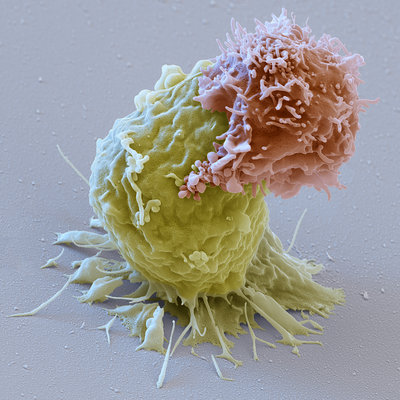Cancer is caused by uncontrolled cell growth. A predisposition to cancer may be inherited from one’s relatives. A predisposition to some cancers, such as skin cancers, can be brought about by excessive exposure to ultraviolet light. Cells may be in interphase (in which the cells are replicating their DNA, growing, or carrying out cell processes) or dividing in mitosis. Ninety percent of the time the cells are in interphase.
The cells of the spinal cord and the brain don’t replicate. So, central nervous system injuries are hard to recover from. Mitosis is important in tissue repair. However, cells cannot always be in mitosis; otherwise, they would not perform their particular functions. Cancer cells don’t undergo apoptosis, programmed cell death, and proliferate quickly forming tumors. Pharmaceuticals used in chemotherapy target cells that undergo mitosis quickly. Cancer cells are now known to secrete their own growth hormones. Therefore, the cancer cells possess the nutrients they require to divide quickly and thrive. Anti-cancer drugs now also target the excess growth hormones secreted by the cancer cells. By targeting these excess growth factors, cancer cells become deprived of the nutrients they require to grow out of control.














































